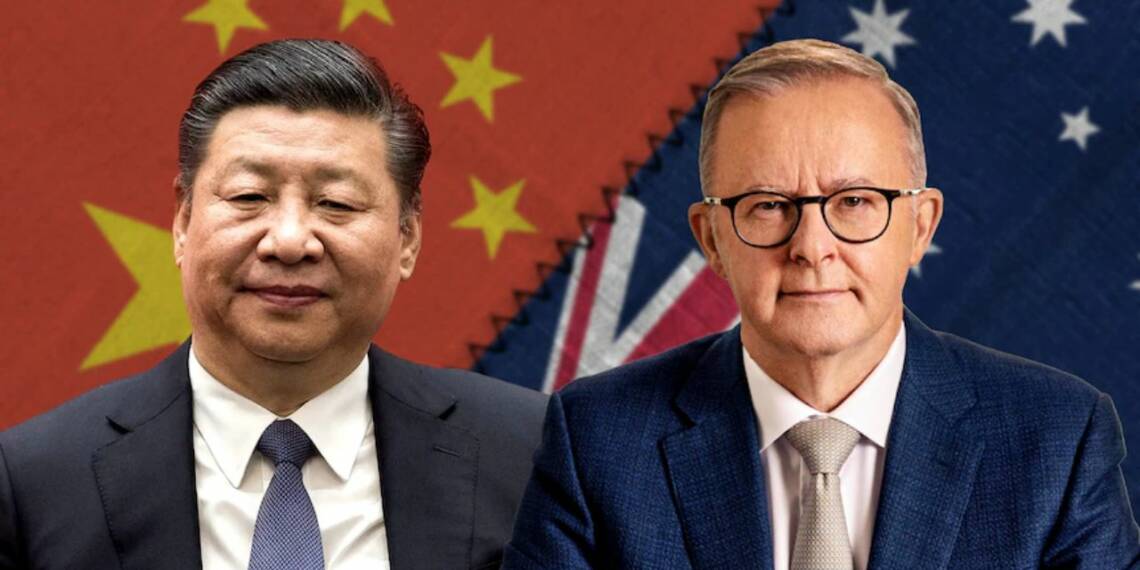As retaliation for Canberra’s criticism of Beijing’s blockage of investigations into the cause of the COVID-19 pandemic and restrictions on Huawei Technologies, China had imposed economic sanctions on a number of Australian industries.
CCP had imposed economic sanctions on a number of Australian businesses, imposing high tariffs on Australian wine and barley exports while erecting hurdles to a number of other products like coal, lobster, and lumber.
Albanese’s pro-China stance
However, things started to change after Anthony Albanese became the Prime Minister of Australia. Albanese’s party is known for its pro-China stance and has even received funding from China in the past. It was expected that Australia will nullify the economic sanctions on China. But it was to see how and when the Albanese administration would go ahead with the plan.

In the event that the two leaders meet for the first time in person this month, Australian Prime Minister Anthony Albanese said on Friday that he will request Chinese President Xi Jinping to remove trade barriers worth billions of dollars. Before leaving Australia on Friday for an East Asia summit in Cambodia, a meeting of the Group of 20 would be held in Indonesia, then Thailand will host the Asia-Pacific Economic Cooperation forum.
A face-to-face meeting between the leaders of China and Australia would represent a significant turning point in the bilateral relationship, which reached new lows during the nine years of the previous conservative government’s tenure in Australia. In recent years, Beijing has prohibited minister-to-minister interactions and placed a number of legal and unofficial trade restrictions on goods like wine, coal, beef, seafood, and barley that have cost Australian exporters A$20 billion (US$13 billion) annually.
Also Read: Australia cancels out the ‘AUKUS’ deal
No more sanctions?
A meeting with Xi, according to Albanese, “is not locked in at this point in time.” But he added that the first step toward normalising relations was for China to eliminate the economic sanctions.
Albanese said, “What I want to see with the relationship with China is cooperation where we … maintain our Australian values where we must.”
Speaking about the sanctions China has placed on Australia, Albanese said, “They’re not in Australia’s interests, of the wine industry, the meat industry and other industries where sanctions have been placed on. But it’s also not in the interests of China.”
The move will undoubtedly reap benefits for Australia but allowing China back into the country may lead to sovereignty issues. Since Albanese’s center-left Labor Party took office in May, “signs of resetting bilateral ties have emerged,” according to a report in China’s People’s Daily English newspaper. However, this would also mean of diluting of stance by Australia in Indo-Pacific and the Solomon Islands security pact with Beijing.
Regarding China’s tariffs on wine and barley, Australia had also filed a complaint with the WTO. Despite harsh trade sanctions placed on Australian coal, barley, meat, and wine, China is now spending more than ever on imports from that country.
The step by Albanese would be helping Beijing economically and strategically. This is a regressive step by Albanese administration. When the whole world is realising the danger possessed by China, Albanese is sending a friend request to Jinping. Albanese must hold restraint and continue with economic sanctions and shouldn’t give China the leverage in bilateral relations which may prove to be a threat to Australia’s sovereignty.








